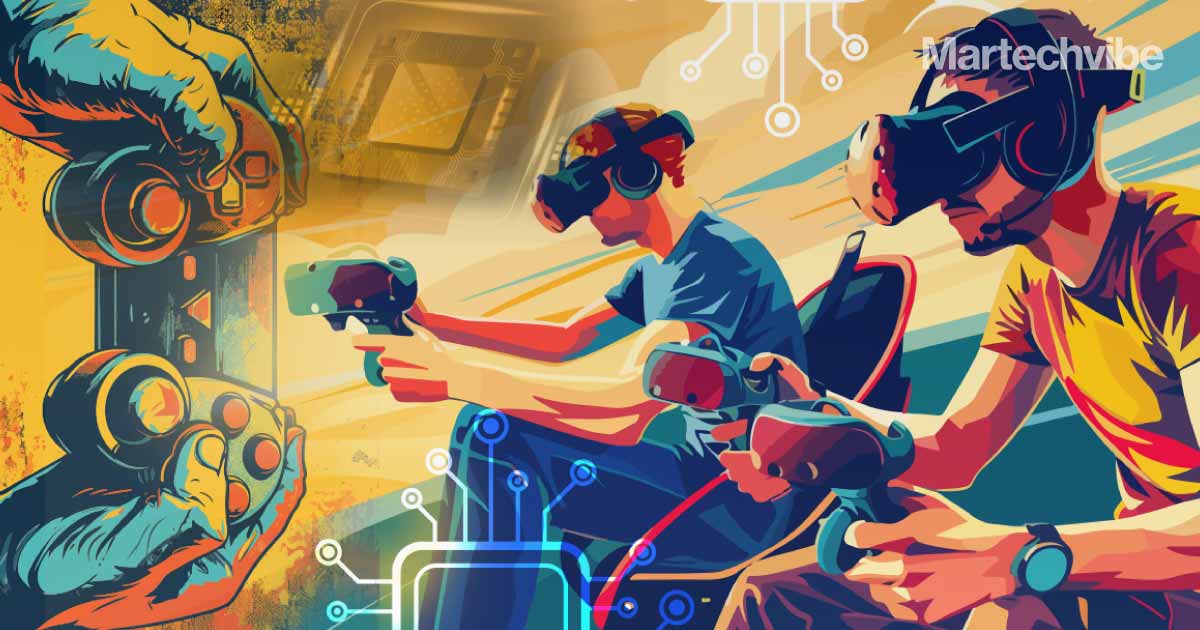AI is Rewriting the Rules of Gaming
AI isn't just improving existing gaming mechanics; it's transforming NPC behaviour, development processes, anti-cheat systems, and even the creation of entire game worlds.
What to Read Next

AI is changing the game – literally! From lifelike NPCs and AI-created worlds to anti-cheat tech and AI companions, the gaming industry is evolving. With massive growth predicted, AI is not just changing how games are played, but how they’re made, promising a future of smarter, more immersive gaming.
The gaming industry is at the cusp of an AI-driven transformation, and the numbers paint a compelling picture. According to Technavio, the AI-focused gaming market is set to skyrocket by $27.47 billion between 2025 and 2029, growing at an astounding compound annual growth rate (CAGR) of 42.3%.
This seismic shift in gaming is fueled by key players such as Capcom, Electronic Arts, Microsoft, NVIDIA, and Tencent, among others, who are integrating AI to redefine the gaming experience.
From Static NPCs to Adaptive Worlds
Gone are the days of predictable non-playable characters (NPCs) following pre-programmed routines. AI is revolutionising gaming by making NPCs more responsive, adaptive, and lifelike. Ubisoft, renowned for its Assassin’s Creed franchise, is already experimenting with generative AI prototypes for NPCs, while NVIDIA’s ACE technology is enabling autonomous characters that can perceive, plan, and act dynamically in response to players. This results in more immersive and unpredictable gameplay, pushing the boundaries of interactive storytelling.
Boosting Productivity and Cutting Costs
AI isn’t just enhancing player experience—it’s also reshaping game development. According to a survey by A16Z Games, 73% of game studios already leverage AI, and 88% plan to incorporate it soon. The impact is undeniable: 39% of AI-integrated studios reported over a 20% boost in productivity, while 25% saw cost savings nearing 20%.
While executives and founders are eager to harness AI (85% approval), there is some hesitation among artists (only 58% are enthusiastic). However, as AI tools become more sophisticated and assist rather than replace creative roles, this divide may soon close.
Generative AI: The Future of Gaming Content
AI-generated assets are streamlining the design process, allowing developers to create vast, intricate worlds with minimal manual effort. Companies like AMD are actively collaborating with game engine developers to implement more generative AI models, promising a future where AI not only assists but actively creates. From landscapes to character designs, AI-driven generation is reducing development cycles and costs while expanding creative possibilities.
ALSO READ: Understanding The Immersive CX Value
AI-Powered Anti-Cheat and Fair Play
In competitive gaming, AI is taking on an entirely different role: ensuring fair play. Activision’s Call of Duty, along with other major multiplayer titles, has integrated AI into their anti-cheat mechanisms, detecting unfair advantages with greater accuracy and efficiency. This move protects the integrity of esports and online matches, ensuring that skill, not software exploits, determines victory.
The Rise of AI-Driven Companion Characters
Games like PUBG and NARAKA: BLADEPOINT have introduced AI-powered co-playable characters and companions, changing the dynamics of single and multiplayer experiences. AI companions can learn from player behavior, assist in strategic planning, and enhance teamwork, bridging the gap between AI and human collaboration in gaming.
The Dawn of AI-Augmented Gaming Networks
Beyond individual games, AI is reshaping the infrastructure of gaming itself. Decentralised gamer network KGeN has partnered with AI verification platform Mira Network to develop an augmented gaming Large Language Model (LLM). This AI-driven model enables developers to build and deploy intelligent agents, enhancing gaming engines with decentralised AI capabilities.
With chipmakers like Qualcomm and AMD pushing AI-enhanced hardware, the gaming experience is set to reach unprecedented levels of performance and realism. The Snapdragon 6 Gen 4 Mobile Platform, for instance, boasts up to 29% improved GPU capabilities and AI-powered efficiency, making high-end gaming more accessible even on mid-range devices.
The fusion of AI with gaming is no longer a futuristic concept—it is happening now. Whether through dynamic NPCs, generative AI content creation, enhanced anti-cheat mechanisms, or AI-driven gaming networks, AI is not just playing the game; it is changing the rules. As this technology continues to evolve, the future of gaming looks more intelligent, immersive, and innovative than ever before.
ALSO READ: AI Raises the Stakes in Online Entertainment









































































































